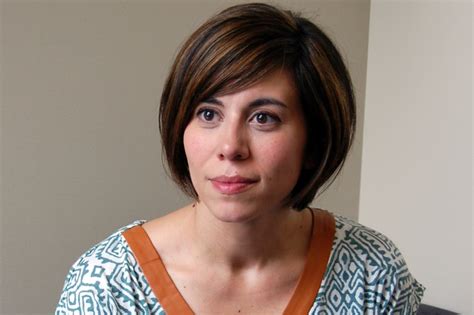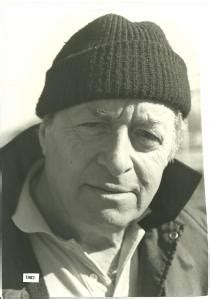A Quote by Ethan Canin
My idea of teaching literature is just to read great passages aloud or to look at it the way a writer does, which is what I try to do. Which is to say, 'How does this writer do this? How did he order his scenes? Do you notice any pattern to his sentences?'
Related Quotes
One of the most useful parts of my education as a writer was the practice of reading a writer straight through - every book the writer published, in chronological order, to see how the writer changed over time, and to see how the writer's idea of his or her project changed over time, and to see all the writer tried and accomplished or failed to accomplish.
Sacred scripture wishes simply to declare that the world was created by God, and in order to teach this truth it expressed itself in terms of the cosmology in use at the time of the writer. Any other teaching about the origin and makeup of the universe is so alien to the intentions of the Bible, which does not wish to teach how heaven was made but how one goes to heaven.
Teaching literature is teaching how to read. How to notice things in a text that a speed-reading culture is trained to disregard, overcome, edit out, or explain away; how to read what the language is doing, not guess what the author was thinking; how to take evidence from a page, not seek a reality to substitute for it.
The writer walks out of his workroom in a daze. He wants a drink. He needs it. It happens to be a fact that nearly every writer of fiction in the world drinks more whisky than is good for him. He does it to give himself faith hope and courage. A person is a fool to become a writer. His only compensation is absolute freedom. He has no master except his own soul and that I am sure is why he does it.
My interest as a writer is not in reflecting actual human speech, which, of course, does not occur in sentences and is totally undiagrammable. My interest is in trying to reflect the reality of experience - how we feel when we talk to each other, how we feel when we're engaging with questions that interest us.
Grown-ups love figures... When you tell them you've made a new friend they never ask you any questions about essential matters. They never say to you "What does his voice sound like? What games does he love best? Does he collect butterflies? " Instead they demand "How old is he? How much does he weigh? How much money does his father make? " Only from these figures do they think they have learned anything about him.
A handwritten letter carries a lot of risk. It's a one-sided conversation that reveals the truth of the writer. Furthermore, the writer is not there to see the reaction of the person he writes to, so there's a great unknown to the process that requires a leap of faith. The writer has to choose the right words to express his sentences, and then, once he has sealed the envelope, he has to place those thoughts in the hands of someone else, trusting that the feelings will be delivered, and that the recipient will understand the writer's intent. How childish to think that could be easy.
Entertain, yes. That goes without saying. But a good writer does that automatically, it's built into the machine. Telling a thumpingly good, mesmerizing story is what one does without question. But beyond that, any writer worth his/her hire knows that all writing, one way or another, is subversive. It is guerrilla warfare against the status quo.
Unless a writer lives with a periodic delusion of his greatness, he will not continue writing. He must believe, against all reason and evidence, that the public will experience a catastrophic loss if he does not complete his novel. The public is just clamoring to give him his fame. From the book Dare to be a Great Writer: 329 Keys to Powerful Fiction by
Rewriting isn't just about dialogue, it's the order of the scenes, how you finish a scene, how you get into a scene. All these final decisions are best made when you're there, watching. It's really enjoyable, but you've got to be there at the director's invitation. You can't just barge in and say, "I'm the writer."
The analytical writer observes the reader as he is; accordingly, he makes his calculation, sets his machine to make the appropriate effect on him. The synthetic writer constructs and creates his own reader; he does not imagine him as resting and dead, but lively and advancing toward him. He makes that which he had invented gradually take shape before the reader's eyes, or he tempts him to do the inventing for himself. He does not want to make a particular effect on him, but rather enters into a solemn relationship of innermost symphilosophy or sympoetry.


































